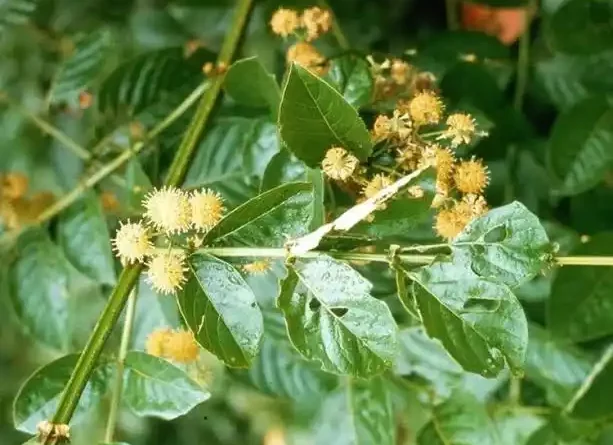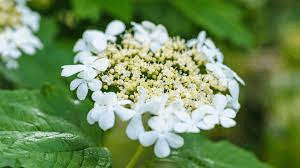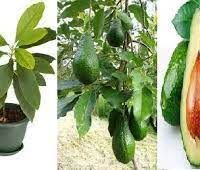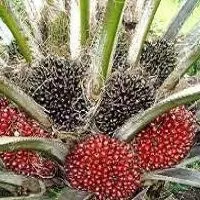15 Medicinal Health Benefits Of Uncaria tomentosa (Cat’s Claw)
Uncaria tomentosa, commonly known as Cat’s Claw or Una de Gato, is a woody vine native to the Amazon rainforest and other tropical areas in Central and South America.
This plant, belonging to the Rubiaceae family, has gained recognition for its traditional uses in indigenous medicine and its potential health benefits.
Uncaria tomentosa is characterized by its climbing vine structure, with distinctive hooked thorns that resemble a cat’s claw, hence its common name.
The leaves are opposite, simple, and oval-shaped, covered with fine hairs that give them a fuzzy or tomentose appearance. The plant produces small, tubular flowers with colors ranging from yellow to white. The fruit is a small, elongated capsule containing seeds.
Indigenous communities in the Amazon rainforest have a long history of using Uncaria tomentosa for various medicinal purposes. The bark and roots of the vine are particularly valued for their therapeutic properties. Traditional uses include the treatment of inflammatory conditions, arthritis, digestive issues, and wounds.
Cat’s Claw, specifically Uncaria tomentosa, contains a variety of active compounds that contribute to its potential health benefits. Alkaloids, including oxindole alkaloids and quinovic acid glycosides, are among the primary constituents thought to have immune-stimulating and anti-inflammatory effects. The plant has been studied for its potential to modulate the immune system, reduce inflammation, and act as an antioxidant.
In modern herbal medicine, Cat’s Claw supplements are often used to support immune health, joint function, and overall well-being. While some scientific studies support these uses, more research is needed to fully understand the mechanisms of action and optimal dosages.
Uncaria tomentosa holds cultural significance among indigenous communities in the Amazon. It is considered a sacred plant and is often used in spiritual practices and traditional ceremonies.
Traditional healers, known as shamans, have employed Cat’s Claw in their medicinal and ritual practices for generations.
The increasing demand for Cat’s Claw in the herbal supplement industry has raised concerns about sustainability and conservation. Overharvesting from natural habitats can impact the plant’s population.
Efforts are underway to promote sustainable harvesting practices and explore cultivation methods to ensure the long-term availability of Uncaria tomentosa.
Uncaria tomentosa, or Cat’s Claw, is a remarkable plant with a rich cultural history and potential health benefits. Its unique appearance, traditional uses, and ongoing scientific research contribute to its significance in both traditional medicine and the contemporary wellness landscape.
The Botanical Description of Uncaria tomentosa
1. Life: Uncaria tomentosa, commonly known as cat’s claw or una de gato, is a woody vine native to the Amazon rainforest. This perennial plant belongs to the Rubiaceae family and is characterized by its robust climbing stems that can reach impressive heights, intertwining with surrounding vegetation.
2. Leaves: The leaves of Uncaria tomentosa are opposite and arranged in pairs along the stems. They are elliptical with a smooth texture and a dark green color, adding to the lush appearance of the vine. The leaves showcase a prominent central vein and are known for their unique claw-like shape.
3. Flowers: Uncaria tomentosa produces small, tubular flowers that grow in clusters. The blossoms, often yellow or white, add a touch of elegance to the vine. The arrangement of flowers contributes to the overall aesthetic appeal of this botanical wonder.
4. Claws or Hooks: A distinctive feature of Uncaria tomentosa is the presence of hooked or claw-like structures along its stems. These claws enable the vine to latch onto nearby structures, providing support as it climbs and giving rise to its common name, cat’s claw.
5. Fruits: The fruits of Uncaria tomentosa are small and fleshy, typically containing seeds. While not visually striking, these fruits play a crucial role in the plant’s reproductive cycle, contributing to the perpetuation of its species.
The Geographic Distribution of Uncaria tomentosa
1. Native Regions: Uncaria tomentosa is indigenous to the Amazon rainforest, thriving in the biodiversity-rich environment of South America. Its native range spans countries such as Peru, Colombia, Ecuador, and other regions within the Amazon basin.
2. Global Presence: Owing to its medicinal properties and horticultural value, Uncaria tomentosa has been introduced to various parts of the world. Cultivation efforts have expanded its presence to regions in North America, Europe, and Asia, where it adapts to diverse climates.
3. Preferred Habitats: Uncaria tomentosa flourishes in tropical rainforests and humid environments. It is well-adapted to regions with abundant rainfall and high levels of humidity, showcasing its resilience in its native habitat.
4. Cultivation: Beyond its natural habitat, Uncaria tomentosa is cultivated in areas with suitable climates for its growth. The vine’s adaptability has led to successful cultivation, meeting the demand for its medicinal applications and ornamental value.
5. Environmental Impact: While Uncaria tomentosa is valued for its medicinal benefits, the introduction of non-native species requires careful management to prevent potential ecological impacts. Sustainable cultivation practices are essential to minimize any adverse effects on local ecosystems.
The Chemical Composition of Uncaria tomentosa
1. Alkaloids: Uncaria tomentosa is renowned for its alkaloid content, including oxindole and quinoline alkaloids. These compounds contribute to the plant’s pharmacological properties and are key components in its traditional medicinal applications.
2. Polyphenols: The presence of polyphenolic compounds, such as flavonoids and tannins, enhances Uncaria tomentosa’s antioxidant capacity. These compounds play a vital role in protecting the plant from oxidative stress and contribute to its potential health benefits.
3. Terpenoids: Uncaria tomentosa contains terpenoids, secondary metabolites known for their diverse biological activities. These compounds may contribute to the plant’s anti-inflammatory and immune-modulating effects.
4. Phytochemical Diversity: Beyond specific compound classes, Uncaria tomentosa exhibits a broad range of phytochemicals, including sterols, triterpenes, and saponins. This chemical diversity underscores the plant’s multifaceted medicinal properties.
5. Cat’s Claw Extracts: Medicinal applications often involve extracts derived from Uncaria tomentosa’s bark and roots. These extracts, standardized for specific compounds, are utilized in herbal medicine and dietary supplements, offering a concentrated form of the plant’s beneficial constituents.
Uncaria tomentosa, with its captivating botanical features, expansive geographic distribution, and intricate chemical composition, stands as a remarkable botanical treasure.
Understanding its attributes contributes to a deeper appreciation of its significance in natural ecosystems and traditional medicine.
Read Also: How to Farm and Care for Bighead Carp Fish (Hypophthalmichthys nobilis)
The Medicinal Health Benefits Of Uncaria tomentosa (Cat’s Claw)

1. Anti-Inflammatory Powerhouse: Uncaria tomentosa boasts potent anti-inflammatory properties, making it a valuable ally in the management of inflammatory conditions such as arthritis and joint pain. The plant’s ability to modulate inflammatory pathways contributes to reduced inflammation and associated discomfort.
2. Immune System Boost: Cat’s Claw has been traditionally recognized for its immune-boosting effects. Regular consumption may strengthen the immune system, enhancing the body’s defenses against infections and illnesses.
3. Antioxidant Richness: With a wealth of antioxidants, Uncaria tomentosa helps combat oxidative stress. The plant’s polyphenols, flavonoids, and other antioxidant compounds contribute to cellular health and may reduce the risk of chronic diseases.
4. Joint Health Support: Cat’s Claw has been studied for its potential in promoting joint health. Individuals dealing with conditions like osteoarthritis may experience relief from joint discomfort with regular use.
5. Gastrointestinal Harmony: The plant may contribute to digestive well-being by addressing issues such as indigestion and bloating. Its soothing properties make it a natural remedy for gastrointestinal concerns.
6. Cardiovascular Wellness: Preliminary studies suggest that Uncaria tomentosa may have cardiovascular benefits. It could play a role in regulating blood pressure and supporting overall heart health.
7. Antiviral Shield: Scientific investigations indicate that Cat’s Claw may possess antiviral properties, adding to its potential as a natural ally against viral infections.
8. Cognitive Function Support: Compounds found in Uncaria tomentosa may have positive effects on cognitive function. The plant’s neuroprotective properties make it a subject of interest in brain health research.
9. Anti-Cancer Potential: Certain compounds within Cat’s Claw have been studied for their potential anti-cancer effects, showing promise in inhibiting the growth of cancer cells.
10. Adaptogenic Qualities: Recognized as an adaptogen, Uncaria tomentosa assists the body in adapting to stressors, promoting overall resilience and well-being.
11. Allergy Relief: Cat’s Claw may offer relief for individuals with allergies. Its anti-allergic properties can help alleviate symptoms like itching and sneezing.
12. Wound Healing Acceleration: Applied topically, Uncaria tomentosa extracts may contribute to wound healing by reducing inflammation and promoting skin recovery.
13. Anti-Anxiety Effects: Some studies suggest that Uncaria tomentosa may have anti-anxiety effects, providing a natural approach to managing symptoms related to stress and anxiety.
14. Liver Health Support: Preliminary research indicates that Uncaria tomentosa may have hepatoprotective effects, supporting liver health and function.
15. Respiratory Health Improvement: The plant has been traditionally used to support respiratory health, providing relief for conditions such as asthma and bronchitis.
The Methods of Usage to Achieve the Provided Health Benefits Of Uncaria tomentosa (Cat’s Claw)
1. Herbal Infusions: Brewing Cat’s Claw tea by steeping the plant’s bark or leaves allows for easy consumption of its medicinal benefits. This method is convenient and provides a soothing beverage.
2. Capsule Supplements: Cat’s Claw supplements, available in capsule form, offer a standardized and controlled dosage for individuals seeking a convenient and precise way to incorporate its health benefits.
3. Tinctures and Extracts: Extracting the plant’s compounds into tinctures or liquid extracts provides a concentrated form for oral consumption, allowing for flexibility in dosage.
4. Topical Applications: Cat’s Claw extracts can be applied topically for skin-related benefits, such as wound healing and anti-inflammatory effects. Creams or ointments are common formulations.
5. Culinary Uses: Incorporating Cat’s Claw into culinary preparations, such as teas, soups, or stews, provides an enjoyable and palatable way to integrate its medicinal properties into daily routines.
The Side Effects Of Using Uncaria tomentosa Medicinal Plant
1. Allergic Reactions: Some individuals may experience allergic reactions to Cat’s Claw. Monitoring for symptoms such as skin rashes, itching, or respiratory issues is crucial.
2. Pregnancy Considerations: Pregnant individuals should exercise caution, as the effects of Cat’s Claw during pregnancy are not well-documented. Consultation with healthcare professionals is advisable.
3. Interactions with Medications: Cat’s Claw may interact with certain medications, affecting their efficacy. Individuals on medications should consult with healthcare professionals before use.
4. Gastrointestinal Discomfort: Excessive consumption of Cat’s Claw may lead to gastrointestinal discomfort, including nausea or vomiting. Moderation is crucial to avoid such side effects.
5. Blood Pressure Regulation: Cat’s Claw may have effects on blood pressure. Individuals with blood pressure concerns should consult healthcare professionals before incorporating it into their regimen.
Uncaria tomentosa, or Cat’s Claw, emerges as a versatile botanical powerhouse with a myriad of health benefits. Understanding its applications, usage methods, and potential side effects empowers individuals to make informed decisions when integrating this remarkable plant into their wellness practices.
Read Also: 10 Medicinal Health Benefits Of Tussilago (Coltsfoot)
The Scientific Research and Studies of Uncaria tomentosa

1. Alkaloids and Immunomodulation: Scientific research has extensively explored the alkaloids present in Uncaria tomentosa, particularly oxindole and quinoline alkaloids. These compounds showcase immunomodulatory effects, influencing the immune system’s responses and potentially enhancing its ability to combat infections and diseases.
2. Anti-Inflammatory Properties: Numerous studies have delved into the plant’s anti-inflammatory properties. Compounds within Uncaria tomentosa have shown the ability to modulate inflammatory pathways, indicating its potential in managing conditions characterized by inflammation.
3. Antioxidant Capacity: Scientific investigations highlight the antioxidant richness of Uncaria tomentosa. The presence of polyphenols, flavonoids, and other antioxidant compounds contributes to the plant’s capacity to neutralize free radicals, supporting cellular health.
4. Neuroprotective Effects: Research has explored the potential neuroprotective effects of Uncaria tomentosa. Compounds within the plant may play a role in supporting neurological health and cognitive function, making it a subject of interest in brain health studies.
5. Anticancer Potential: Preliminary studies have investigated the plant’s potential in inhibiting the growth of cancer cells. Specific compounds within Uncaria tomentosa have demonstrated promising results in laboratory settings, paving the way for further research in cancer studies.
6. Antiviral Activity: Scientific studies indicate that Uncaria tomentosa may possess antiviral properties. Certain components within the plant show inhibitory effects against viruses, offering potential applications in antiviral therapies.
7. Cardiovascular Benefits: Research suggests that Uncaria tomentosa may offer cardiovascular benefits. Studies have focused on its role in regulating blood pressure and supporting overall heart health.
8. Wound Healing Potential: Scientific investigations have explored the plant’s potential in accelerating wound healing. Extracts from Uncaria tomentosa, when applied topically, may contribute to the healing process by reducing inflammation and promoting tissue regeneration.
9. Gastroprotective Effects: Research has indicated the gastroprotective properties of Uncaria tomentosa. Compounds within the plant may contribute to maintaining gastrointestinal health, offering potential remedies for digestive issues.
10. Antifungal Activity: Scientific studies have assessed Uncaria tomentosa’s antifungal properties. Certain compounds within the plant may exhibit inhibitory effects against fungi, opening avenues for further research in antifungal therapies.
The Safety Precautions and Recommendations In Using Uncaria tomentosa Medicinal Plant
1. Allergy Monitoring: Individuals using Uncaria tomentosa should be vigilant for potential allergic reactions. Symptoms such as skin rashes, itching, or respiratory issues may indicate an allergic response. Conducting a patch test before widespread use is advisable.
2. Pregnancy Caution: Pregnant individuals should exercise caution when considering the use of Uncaria tomentosa, as its effects during pregnancy are not thoroughly documented. Consultation with healthcare professionals is recommended.
3. Medication Consultation: Individuals on medications should consult healthcare professionals before incorporating Uncaria tomentosa into their health regimen. Potential interactions may affect the efficacy of certain drugs.
4. Dosage Moderation: To prevent potential side effects such as gastrointestinal discomfort, it is crucial to moderate the dosage of Uncaria tomentosa. Excessive consumption may lead to symptoms like nausea or vomiting.
5. Blood Pressure Monitoring: Individuals with blood pressure concerns should monitor their blood pressure regularly when using Uncaria tomentosa, as the plant may have effects on blood pressure. Healthcare professional consultation is advised.
FAQs About Uncaria tomentosa Medicinal Plant
1. Can Uncaria tomentosa be consumed daily for health benefits?
Yes, Uncaria tomentosa can be consumed daily for its health benefits. However, moderation is key to avoid potential side effects. Consultation with healthcare professionals is recommended for personalized guidance.
2. Is Uncaria tomentosa safe during pregnancy?
Pregnant individuals should exercise caution and consult healthcare professionals before using Uncaria tomentosa. Limited data on its effects during pregnancy necessitate careful consideration.
3. Are there any known interactions between Uncaria tomentosa and medications?
Yes, Uncaria tomentosa may interact with certain medications. It is crucial to inform healthcare providers of its usage to prevent potential interactions that could affect medication efficacy.
4. How can Uncaria tomentosa be applied topically for wound healing?
Uncaria tomentosa extracts can be incorporated into topical formulations such as creams or ointments for wound healing. Applying these formulations to affected areas may contribute to the healing process.
5. Can Uncaria tomentosa be used in children’s health?
While Uncaria tomentosa is generally considered safe, it is advisable to consult with a pediatrician before administering it to children. Individual health conditions and potential allergies should be considered.
6. Is Uncaria tomentosa effective against viral infections?
Research suggests that Uncaria tomentosa may exhibit antiviral properties. While it shows promise, further studies are needed to establish its effectiveness against specific viral infections in clinical settings.
7. Are there potential side effects of Uncaria tomentosa on cognitive function?
Studies indicate potential neuroprotective effects of Uncaria tomentosa, suggesting positive impacts on cognitive function. However, individual responses may vary, and more research is needed to fully understand its cognitive benefits.
8. Can Uncaria tomentosa be used as an alternative to prescribed medications?
Uncaria tomentosa should not be used as a substitute for prescribed medications. It is essential to follow healthcare professionals’ advice and not self-prescribe for serious medical conditions.
9. Is there a recommended time of day to consume Uncaria tomentosa for maximum benefits?
There is no specific recommended time of day. Consistency in consumption, whether through teas, supplements, or other forms, is key to experiencing potential health benefits.
10. How long does it take to experience the medicinal effects of Uncaria tomentosa?
The onset of effects varies among individuals and depends on factors such as dosage and individual response. Consistent use over time may yield noticeable benefits.
Understanding the scientific underpinnings, safety considerations, and frequently asked questions surrounding Uncaria tomentosa empowers individuals to make informed decisions regarding its medicinal use. Always prioritize safety, consult with healthcare professionals, and tailor usage to individual needs and circumstances.
Read Also: The Role of Livestock Farming in a Sustainable Food System











